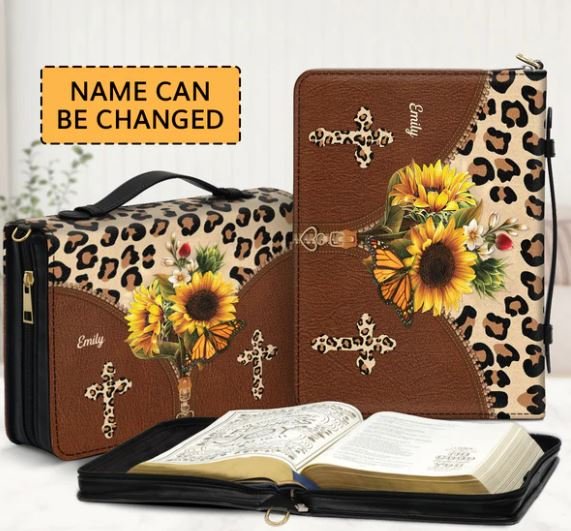God Wants to Use Us to Make a Difference in Others' Lives, but Unforgiveness Ruins That
As an Amazon Associate, I earn from qualifying purchases. This page contains affiliate links. If you choose to make a purchase after clicking a link, I may receive a commission at no extra cost to you.
Visit our Holy Spirit Gear Store- - - - - ->>> HERE <<< - - - - - - New items Weekly
As a Christian, I have often been challenged with the call to love and serve others, to be a vessel of God's love in this world. It is a beautiful mission, and I believe we are all called to impact those around us. But there is something that can disrupt this calling in a profound way—unforgiveness.
God desires to use us to make a difference, but when we hold on to bitterness and resentment, we build walls that block His love from flowing through us. We cannot truly love others the way God commands when unforgiveness grips our hearts. The Bible is filled with wisdom on this subject, and today, I want to explore how unforgiveness not only hinders our relationship with others but also stifles our ability to serve God's purpose in their lives.
Forgiveness: A Command, Not an Option
The Bible is crystal clear when it comes to forgiveness. It’s not just a suggestion; it’s a command from God. In Matthew 6:14-15, Jesus says, “For if you forgive other people when they sin against you, your heavenly Father will also forgive you. But if you do not forgive others their sins, your Father will not forgive your sins.”
Jesus doesn’t mince words. Our own forgiveness is tied to our willingness to forgive others. This doesn't mean it’s easy. Forgiveness often requires the work of the Holy Spirit because, in our flesh, we are prone to anger, bitterness, and a desire for revenge. But when we refuse to forgive, we are effectively blocking the very forgiveness we need from God.
How can we be used to extend His grace to others if we cannot even accept it fully for ourselves? We must remember that our ability to impact others is linked to our own spiritual freedom, and unforgiveness keeps us in chains.
Unforgiveness Harms Us More Than Others
Ephesians 4:31-32 teaches us to “Get rid of all bitterness, rage and anger, brawling and slander, along with every form of malice. Be kind and compassionate to one another, forgiving each other, just as in Christ God forgave you.”
Unforgiveness not only impacts our spiritual health but also damages our physical and emotional well-being. Harboring grudges can lead to stress, anxiety, and even physical ailments. We may think that holding onto anger punishes the person who hurt us, but in reality, it only punishes ourselves.
God's plan for us is to be free—free to love, free to serve, and free to be at peace. Unforgiveness is like drinking poison and expecting someone else to be harmed by it. It imprisons us, limiting our ability to be used by God in the lives of others.
God’s Example of Forgiveness
We are called to forgive others because God has forgiven us. Colossians 3:13 says, "Bear with each other and forgive one another if any of you has a grievance against someone. Forgive as the Lord forgave you."
Think about that for a moment. God’s forgiveness of us is complete and without condition. We don’t have to earn His forgiveness. He gives it freely through the sacrifice of Jesus Christ. If God, who is perfect, can forgive us of all our sins, how much more should we, imperfect beings, forgive others?
When we understand the depth of God’s forgiveness toward us, it becomes a bit easier to extend that grace to others. The cross of Christ is the ultimate example of forgiveness. Jesus, though innocent, endured the cross for our sake. While He was hanging there, He said, “Father, forgive them, for they do not know what they are doing” (Luke 23:34). If Jesus could forgive those who were crucifying Him, we, too, are called to forgive those who hurt us.
The Ripple Effect of Forgiveness
Forgiveness doesn’t just affect us—it has a ripple effect on the lives of others. When we forgive, we open up the door for God to move powerfully in our relationships.
Unforgiveness creates walls, but forgiveness builds bridges. In a world where people are quick to hold grudges and slow to forgive, showing mercy and grace can make a profound impact. In Matthew 18:21-22, Peter asks Jesus, “Lord, how many times shall I forgive my brother or sister who sins against me? Up to seven times?” Jesus answered, “I tell you, not seven times, but seventy-seven times.”
Jesus is teaching us that forgiveness is not a one-time event, but a lifestyle. When we live a life of forgiveness, we become conduits of God’s grace. We make it possible for others to see God’s love in us.
Letting Go to Be Used By God
God cannot fully use us to make a difference in others' lives if we are holding onto unforgiveness. In my own journey, I have had to confront moments where unforgiveness was holding me back from truly being used by God. It wasn’t until I released those offenses to Him that I was able to move forward and see God work through me.
I love what Jesus says in Matthew 5:23-24: "Therefore, if you are offering your gift at the altar and there remember that your brother or sister has something against you, leave your gift there in front of the altar. First go and be reconciled to them; then come and offer your gift."
This Scripture reveals just how important forgiveness is to God. Even our acts of worship are hindered if we are not in right relationship with others. We cannot effectively serve God and be used by Him to make a difference in others’ lives if we are carrying the weight of unforgiveness.
Forgiveness as a Ministry
Our willingness to forgive can be a ministry in itself. The world is filled with broken relationships and hearts hardened by anger and resentment. As followers of Christ, we have the opportunity to demonstrate a different way.
By forgiving others, we reflect the heart of God. It can be one of the most powerful testimonies to the love of Christ. When we forgive, we show that our faith is more than just words—it is action.
Forgiveness requires humility, and in that humility, God is glorified. When we let go of our desire for justice and trust God to heal the wounds of our hearts, we allow His grace to flow through us and into the lives of others.
Unforgiveness Stands in the Way of God’s Plan
Unforgiveness is a barrier that prevents us from being fully used by God to make a difference in the lives of others. It keeps us in bondage, limits our ability to love, and ultimately disrupts our relationship with God.
If we want to be vessels for God's grace and love, we must be willing to forgive. It’s not always easy, but it is necessary. Jesus reminds us in Mark 11:25, “And when you stand praying, if you hold anything against anyone, forgive them, so that your Father in heaven may forgive you your sins.”
God’s plan for us is to be used for His glory, but unforgiveness ruins that. Let us choose forgiveness, as Christ forgave us, and be free to make a lasting impact in the lives of those around us.
Recommended Books to Further Study the Subject















